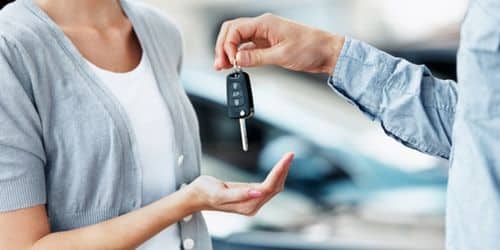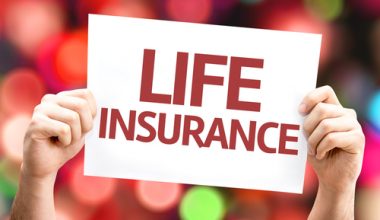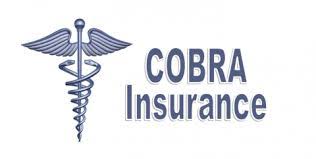You don’t need insurance just because you don’t own a car. A non-owner car insurance coverage may be a worthwhile purchase if you borrow, rent, or share a car with someone else. This type of policy can give you basic liability coverage, which will protect you financially if you are driving someone else’s vehicle and cause an accident. It may also be required if you have lost your license due to a traffic violation and live in a state that requires proof of insurance (SR-22) to be reinstated.
What Is Non-Owner Car Insurance?
Non-owner car insurance covers drivers who do not own a car but frequently drive borrowed cars, rented cars, or car sharing programs. If you have a valid driver’s license but do not own a vehicle, you are eligible for non-owner insurance.
How Does Non-Owner Car Insurance Work?
Non-owner auto insurance is regarded as supplemental coverage. If an accident is covered by two insurance policies, the secondary policy only pays for what the primary policy does not cover. If you borrow a friend’s car and get into an accident, your friend’s auto insurance policy will pay first, and your non-owner policy will cover any residual costs or damages that exceed your friend’s liability limits.
Furthermore, non-owner car insurance packages often do not include a deductible. Coverage limits are established when you purchase your policy.
What Does Non-Owner Car Insurance Cover?
- Non-owner car insurance covers you if you cause a car accident while driving a rented car.
- Physical harm you cause to others, such as medical expenses
- You inflict damage on others, such as car repair fees or property damage.
- Legal defense if you are accused of causing a car accident.
You may be able to acquire medical coverage with a non-owner car insurance policy, depending on your state and insurance carrier, such as:
- Uninsured motorist coverage (UM): This policy covers your medical expenses if someone hits you and doesn’t have or has insufficient liability insurance. Depending on your state, uninsured motorist coverage may also cover hit-and-run accidents.
- Medical payments coverage (MedPay) pays for your and your passengers’ medical claims regardless of who caused the accident.
Non-owner car insurance is secondary coverage, which means it comes in after any primary coverage has been exhausted. For instance, if you borrow a friend’s car and get into an accident, your friend’s car insurance pays first, up to the policy limits. If the liability limits of your policy are reached, your non-owner car insurance may pay (up to your policy limits).
Secondary Coverage
Non-owner auto insurance is regarded as supplemental coverage. If an accident is covered by two insurance policies, the secondary policy only pays for what the primary policy does not cover. If you borrow a friend’s car and get into an accident, your friend’s auto insurance policy will pay first, and your non-owner policy will cover any residual costs or damages that exceed your friend’s liability limits.
What Does Non-Owner Car Insurance Not Cover?
While non-owner car insurance is intended to meet a driver’s minimum liability insurance requirements, there are a few typical exclusions:
- Damage to the car you are driving. Non-owner car insurance excludes collision and comprehensive insurance, which covers a wide range of issues such as car theft, fires, floods, hail, riots, vandalism, animal collisions, and falling objects. If someone else causes an accident in your car, the vehicle’s owner can file a claim under their own collision and comprehensive insurance, or against the at-fault driver’s liability insurance.
- Injuries sustained in a car collision. You will not be covered for any injuries sustained in a car collision if your non-owner car insurance policy just includes liability insurance. If you need injury coverage, you may be able to add medical costs coverage.
- Other motorists. Non-owner car insurance packages often only cover you and not your spouse or any other drivers in your household. Some insurance providers will not let you have non-owner car insurance coverage if you have a personal auto insurance policy.
- Business Driving: A non-owner car insurance policy will most likely not cover you if you use a car for work purposes, such as delivering items to a customer. Non-owner car insurance policies frequently exclude business use.
- Personal effects. Personal belongings lost, damaged, or stolen are not covered by a non-owner car insurance policy. For example, if someone steals your laptop from a borrowed car, it is not covered by motor insurance. Personal items coverage may be provided through your homeowners’ or renters’ insurance.
Assume you were in an accident while driving a friend’s car, and your friend’s insurance had a $25,000 limit on property damage liability. If you caused $40,000 in damage, you would be liable for the additional $15,000 in damages. Your non-owners policy would pay this amount, but only if it included at least $40,000 in property damage liability coverage. Unless your non-owner liability limits are higher than the person whose car you’re driving, your non-owner insurance will not apply.
How to Get a Cheap Non-Owner Insurance Policy
You’ll need to call to get a quote for non-owner insurance. Despite the fact that most major auto insurance firms provide non-owner plans, none provide the estimates online. Even Geico, which is known for its simple online approach, requires you to phone an agent to get a quote.
Best Non-owner Car Insurance Companies
| Company | Phone Number |
| State Farm | 800-782-8332 |
| Geico | 1-800-861-8380 |
| Progressive | 1-800-776-4737 |
| Nationwide | 1-877-669-6877 |
| The General | 1-800-280-1466 |
| Dairyland | 844-242-4468 |
| Titan | 1-800-926-3168 |
To purchase coverage, you must supply some basic personal information, as well as your driver’s license number and a payment method, such as a credit card.
The best non-owner vehicle insurance company is determined by your driving history and personal details, as these criteria will influence your price. Furthermore, some insurers do not offer non-owner insurance in certain states.
Call numerous insurers and compare multiple car insurance quotes before making a purchase to ensure you pay the cheapest cost. If you also require an SR-22 or FR-44, inquire whether the company can file this form for you.
When you buy non-driver insurance, your insurer will normally email you an ID card and mail you a physical card as evidence of coverage.
What Is the Cost of Non-Owner Car Insurance?
When compared to a regular auto insurance policy, comparing prices for non-owner coverage is difficult because you must call each insurer separately. In general, non-owner policies are 5% to 15% less expensive than normal policies with comparable coverage. However, when comparing a non-owner policy to a full-coverage policy or insuring a high-value car, the savings can be significant.
The cost of non-owners insurance coverage can vary depending on the following factors:
- Your coverage parameters
- Your driving record
- Where do you live?
- How frequently do you intend to drive?
When Should You Consider Non-Owner Car Insurance?
#1. You are attempting to get your license reinstated following a significant offense.
If your license is suspended after being convicted of a DUI or other major traffic violation, you must file an SR-22 or an FR-44 to get it reinstated. You will be required to confirm that you have obtained car insurance as part of this process. If you do not own a car, the non-owner coverage will suffice to meet state requirements.
#2. You regularly rent automobiles.
As part of the basic rental charge, most states require car rental firms to provide the state’s required levels of liability insurance. However, in many circumstances, statutory minimums cover relatively little, and certain jurisdictions, such as California, do not require rental companies to provide liability insurance.
Additional liability insurance can be purchased at the rental counter for $10-$16 per day. If you rent a car more than a few times each year and want more than the bare minimum of liability coverage, your own non-owner policy may be the most cost-effective option.
When you pay with a credit card, you get coverage for damage to the rental car, but you don’t get liability insurance.
#3. You routinely make use of car-sharing programs.
As part of the rental charge, car-sharing firms include some amount of liability coverage. Zipcar, for example, provides the minimal amount of coverage necessary by their state to users who joined after July 2018. However, you must pay a $1,000 “damage fee” before this coverage kicks in.
For an additional annual price, car-sharing businesses typically provide additional coverage or lower deductibles – Zipcar’s “damage fee waiver” is $79/year, for example. A non-owner policy, on the other hand, covers you when you drive any vehicle, including those rented through car-sharing programs.
#4. You borrow a car from a friend or family member.
When you drive someone else’s car, any expenses incurred as a result of an accident are usually covered by the owner’s insurance coverage. However, the level of coverage is determined by the car’s owner, not you. And if there are claims issues, you are not the insurance company’s consumer. You can be confident that you have appropriate liability coverage under your own policy.
#5. You’re in a car accident.
If you don’t expect to buy a car in the near future but want to preserve continuous coverage and long-term customer status, a non-owner insurance policy is a good car. It will also cover you when you are testing autos. If you buy a car, you must notify your insurer promptly and transfer it to an owner’s policy.
When to Avoid Using Non-Owner Insurance
Non-owner car insurance is not appropriate for the following individuals:
- Most companies will not allow you to acquire a non-owner policy if you live with someone who owns a car.
- Instead of driving, use public transportation or rideshare services.
- Only drive when using rental cars a few times per year, in which case rental car insurance is a better option.
- You have no intention of ever owning a car.
SR-22 Insurance for Non-Owners
If you have a DUI or a significant traffic violation, you may require SR-22 or FR-44 insurance to get your license renewed. Depending on the SR-22 criteria, you may need greater limits and must maintain this coverage for two to five years in order to keep your license.
Because you cannot file an SR-22 on your own and must rely on your insurer to do so, a non-owner SR-22 policy can be useful, especially if you do not own a car. The business from which you purchase the non-owners policy can file the SR-22 on your behalf and get you back on track to regaining your license.
One significant advantage of using non-owners insurance for an SR-22 is that it is less expensive. You’ll still be charged more than others for whatever reason the SR-22 was required. However, your premiums won’t be as high as they would have been with standard auto insurance coverage.
Keep in mind that not all insurance companies, particularly smaller ones, will sponsor an SR-22 or FR-44. If yours does not, you can obtain non-owner coverage and have another company submit the SR-22 on your behalf.
Can You Get Car Insurance Without a Car?
Even if you don’t own a car but still intend to drive other people’s cars, you can still purchase insurance for them. Liability coverage for injuries or property damage that you cause to another person or entity is provided by a non-owner car insurance policy. If the owner of the car has liability limits that are insufficient to fully cover the incident, or if you are not eligible for coverage under the owner’s policy, purchasing non-owner insurance may be beneficial. This might take place in certain situations, depending on the policies of the insurer as well as the specifics of the collision that took place.
Non-owner insurance coverage may include, in addition to liability coverage, coverage for medical payments and/or personal injury protection, as well as coverage for uninsured or underinsured motorists, in addition to the standard liability coverage.
What Should I Do if I Have Non-owner Car Insurance and I Buy a Car?
If you purchase a vehicle, you are legally required to obtain a comprehensive auto insurance policy. However, if you own a vehicle, you are not covered by non-owner car insurance policies.
If you want to get a head start on finding the best deal on car insurance, comparing the rates offered by multiple insurers is a good place to start. Find a company that provides the coverage you want at a price that is affordable. It is also better to consider one with a solid reputation for providing excellent service to its clients. The following is a list of the most reputable auto insurance companies.
Can I Get Insurance on a Car That Is Not in My Name?
You will not be able to buy auto insurance for a vehicle that is not registered in your name in the vast majority of cases. If you drive a vehicle that legally belongs to a friend or family member, or if you are given a vehicle that is registered in the name of another person, the legal owner of the vehicle is the one who is responsible for maintaining insurance coverage for it.
How Do I Insure a Car I Don’t Own?
Indicating an additional interest: If you have your own insurance policy, you have the option of including the vehicle’s owner as an additional interest. Obtaining insurance for a vehicle that is not your own is typically done in this straightforward and common manner.
What Is the Purpose of Non-owner Car Insurance?
A non-owner insurance policy will provide liability coverage for bodily injury and property damage if you are a regular driver who does not own a car. This means that the policy will protect you financially in the event that you are found to be responsible for an accident that results in injuries or property damage.
Can I Be the Registered Keeper of a Car but Not Own It?
A vehicle’s registered keeper is not necessarily its owner in all cases. Whoever is listed on the DVLA registration certificate is the one responsible. For instance, you might be listed as the keeper of record for the company vehicle that you use. If you are not the car’s primary driver or registered keeper, you will need to check that you are covered by the insurance policy before getting behind the wheel.
Do I Need Non-Owned Auto Insurance?
Non-owner insurance is a form of liability coverage that is made available to motorists who do not own a vehicle. This coverage may be necessary for someone who does not own a vehicle if they rent cars on a regular basis or if they are required to carry liability insurance in order to maintain their driver’s license.
Conclusion
Drivers who do not own a car may benefit from purchasing non-owner auto insurance coverage. It provides liability coverage as well as the option to purchase additional coverage such as personal injury protection or underinsured/uninsured motorist coverage. Several car insurance providers, including the ones listed below, offer these premiums.
If you need to acquire a non-owner policy, you will have many possibilities. The majority of the country’s largest vehicle insurance companies provide non-owner car insurance, including:
- Allstate
- Farmers
- Geico
- Liberty Mutual Insurance Company
- Nationwide
- Progressive
- State Farm Insurance
- USAA
Non-Owner Car Insurance FAQs
Does a named driver need their own insurance?
As a named driver, you do not need your own insurance coverage. The whole point is that named drivers can be added to an already existing policy.
What happens if someone else is driving my car and gets in an accident?
If you let someone else drive your car and an accident occurs, you must make a claim with your own insurance provider. The bulk of medical bills, property damage, and other expenditures are covered by your policy. However, if your losses exceed a particular amount, you can file a claim against the at-fault motorist.
What is permissive user?
A permissive user is someone who has your permission but isn’t mentioned on your insurance policy.
- Controlling the Cost of Auto Insurance
- BEST CAR INSURANCE COMPANIES REVIEWS
- Best Car Insurance For Under 25: Costs and Discounts
- Car Accident Lawyer: Fees and How they Work
- WHEN SHOULD YOU REFINANCE YOUR CAR? Is It Ever a Good Idea to Refinance Your Car?






